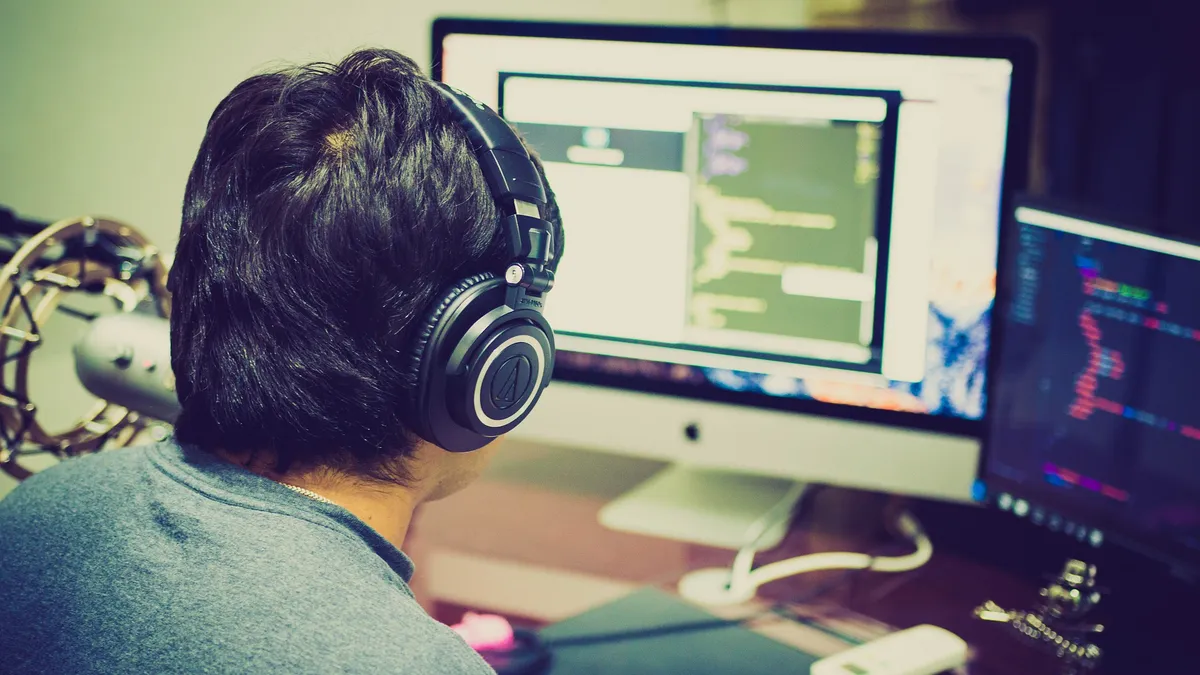Dive Brief:
- U.S. State Department consular officers will begin limiting Chinese graduate students in STEM to one-year visas, with a focus on academic fields overlapping with China's 2025 development strategy, such as robotics, aviation and advanced tech manufacturing, according to an Associated Press report. The restrictions come as a result of allegations by the Trump administration of intellectual property theft by the Chinese government.
- The changes are set to take effect June 11, though the application process for visas will remain the same.
- Chinese citizens trying to work for companies on the Department of Commerce's list for higher scrutiny will need to get special clearance from several federal agencies, which could take months per application, according to the report.
Dive Insight:
President Trump included plans to "consider restrictions on foreign STEM students from designated countries to ensure that intellectual property is not transferred to competitors" in December's National Security Strategy. The topic arose many times during the months-long roller coaster of trade restriction negotiations between the U.S. and China, which recently culminated in a 25% tariff on $50 billion of Chinese imports.
In the past, visa applicants were typically issued the five-year visas, a maximum duration extended by the Obama administration in 2014 to facilitate cultural, trade and personal ties between the countries.
Foreign workers make up one-quarter of the American STEM workforce, with many more in the university pipeline — most of whom are from China. From 2016 to 2017, 350,000 Chinese foreign students came to the U.S., driving STEM innovation and new technology patents.
China has laid out a clear and aggressive strategy to usher in the next generation of Chinese manufacturing and technology, looking to establish dominance across all advanced tech industries. In 2016, the ratio of student returnees to departees in China drew closer to parity at about 1 to 1.3, respectively, according to ICEF.
The growing Chinese economy, especially in technology, is a big draw for many returnees. The country has booming technology centers, rising dominance in advanced fields like artificial intelligence and quantum computing and a triumvirate of technology companies (Alibaba, Baidu and Tencent) rivaling America's big tech sector.
In the U.S., which is battling to maintain an edge against the Asian competitor, the loss of such talent will be keenly felt. With additional changes to immigration policies and restrictions on skilled worker visas like H-1B, worries are arising that the brain drain the U.S. has benefited strongly from in the past is ebbing.
The Optional Practical Training program for foreign university students, more than half of which are in STEM, has seen a marked increase in the last 10 years, steadily outpacing H-1B visas in approvals. But new restrictions on the largest population of foreign students could hit this program hard.
Most in the technology industry have been quick to decry limitations to foreign workers and students. Foreign talent, especially from China and India, has filled roles and research positions in a country where STEM talent demand outpaces supply.
In the past, immigrants have shouldered the risks of entrepreneurism, emerging twice as likely to start businesses than native-born U.S. citizens. Immigrant founders in the U.S. create an average of 760 jobs per company — and account for more than half of unicorns in the U.S., according to the National Foundation for American Policy.











